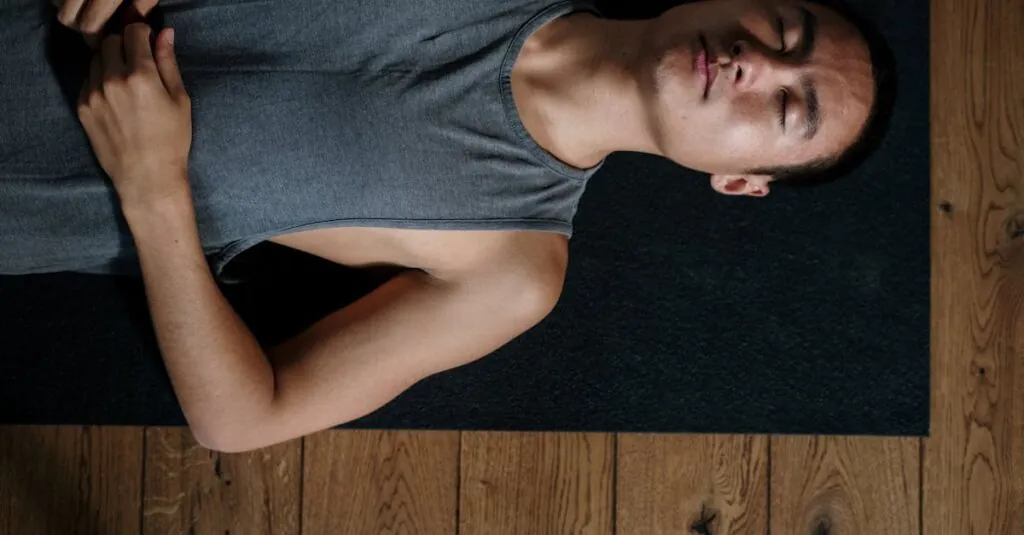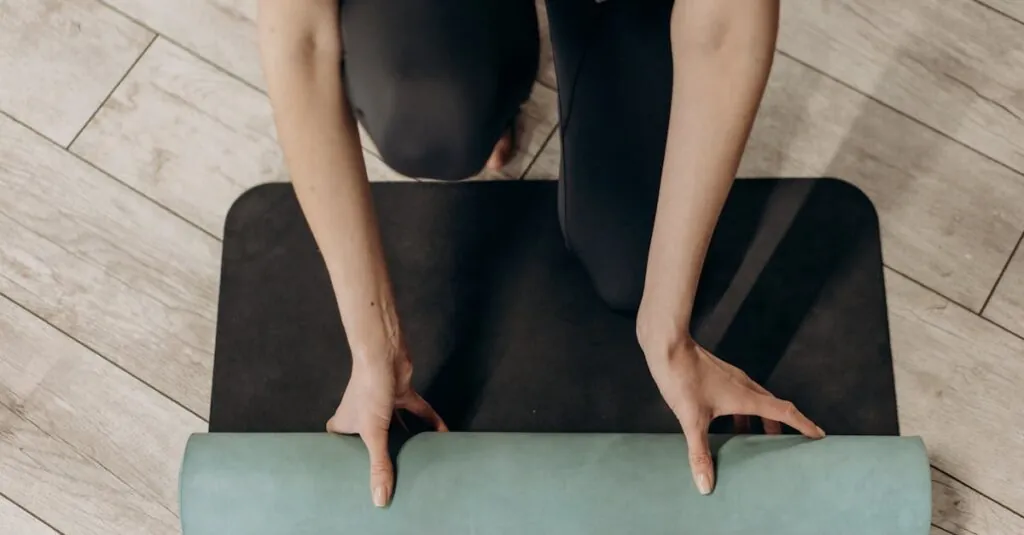In today’s fast-paced world, everyone’s running on empty. Between juggling work, family, and social obligations, it’s easy to forget about self-care. Enter the recharge routine—a delightful recipe for restoring energy and sanity. Think of it as a spa day for your mind and body, minus the hefty price tag and questionable cucumber slices.
Imagine waking up refreshed, ready to tackle the day instead of stumbling out of bed like a zombie in search of coffee. A well-crafted recharge routine can transform your daily grind into a revitalizing experience. It’s not just about relaxation; it’s about reclaiming your zest for life. So grab your favorite cozy blanket and a cup of herbal tea, because it’s time to discover how a few simple habits can turn your chaos into calm.
Table of Contents
ToggleWhat Is a Recharge Routine?
A recharge routine refers to a set of practices designed to restore energy and enhance mental well-being. This routine offers individuals a structured approach to unwind and re-energize during or after stressful periods. Simple yet effective, these habits can transform daily life, allowing for moments of serenity amid chaos.
Engaging in a recharge routine may involve various activities tailored to personal preferences. These can include mindfulness practices, such as meditation or yoga, which promote mental clarity. Physical exercises, such as walking or stretching, also contribute to elevating mood and reducing tension. Other options, like journaling or indulging in creative pursuits, help enhance self-reflection.
Establishing a daily or weekly schedule for these activities strengthens the routine and fosters consistency. Most individuals may find that dedicating even 15 to 30 minutes a day significantly improves their energy levels and mental focus. Incorporating social interactions or lighthearted entertainment can also bolster the efficacy of recharge routines.
The overall goal is to create a personalized system that prioritizes self-care. By setting aside time, individuals not only recharge but also reconnect with their needs. In essence, a recharge routine serves as a valuable tool for maintaining balance and enhancing overall quality of life.
Benefits of a Recharge Routine
A recharge routine offers significant advantages for both mental and physical health. These benefits stem from consistent self-care practices that enhance overall well-being.
Mental Health Benefits
Improved focus occurs with regular engagement in recharge routines. Mindfulness activities, such as meditation and yoga, reduce stress and anxiety levels. Emotional resilience strengthens when individuals take time for reflection and creative expression. Increased happiness results from fostering gratitude and positivity during these practices. Enhanced sleep quality is a common outcome, leading to greater mental clarity and energy throughout the day. Participants often find themselves more adaptable to challenges and better equipped to handle daily stressors.
Physical Health Benefits
Increased energy levels frequently accompany a consistent recharge routine. Regular physical activities, like walking or stretching, improve circulation and overall fitness. Enhanced immune function can occur, resulting from reduced stress hormones. Improved posture and flexibility are common benefits from incorporating exercise into self-care practices. Participants often experience better quality sleep, positively impacting their overall health. Additionally, engaging in outdoor activities boosts vitamin D levels, contributing to stronger bones and a healthier body.
Elements of an Effective Recharge Routine
Creating an effective recharge routine requires attention to several key elements. Each component plays a vital role in enhancing overall well-being and energy levels.
Time Management
Time management serves as the foundation for an effective recharge routine. Scheduling specific times for activities ensures consistency and prioritizes self-care. Setting aside at least 10 to 30 minutes daily can significantly impact energy levels. Blocking time in a calendar helps reinforce commitment and prevents distractions. Prioritizing what’s important makes it easier to include recharge practices in daily life. Individuals can experiment with different times to see when they feel most energized. Adjusting schedules to accommodate busy periods allows flexibility in maintaining routines.
Mindfulness Practices
Mindfulness practices contribute to mental clarity and emotional balance. Techniques such as meditation, deep breathing, and yoga help cultivate awareness and relaxation. Engaging in these activities for just 5 to 15 minutes daily might enhance focus and reduce anxiety. Creating a designated space for mindfulness fosters a more immersive experience. Incorporating gratitude journaling as a part of the routine also increases positivity. Exploring various mindfulness methods enables individuals to find what resonates best with them. Those practices create a deeper connection to personal needs and emotional states over time.
Physical Activities
Physical activities play a crucial role in revitalizing the body and mind. Engaging in exercises like walking, stretching, or cycling boosts energy levels, circulation, and fitness. Getting at least 20 to 30 minutes of physical activity several times a week improves overall health. Finding enjoyable workouts increases the likelihood of maintaining a consistent exercise routine. Incorporating outdoor activities enhances vitamin D absorption and mood. Mixing different types of physical activities keeps the routine fresh and engaging. Establishing a balance between high-intensity and low-impact exercises ensures comprehensive fitness and recovery.
Customizing Your Recharge Routine
Customizing a recharge routine requires careful consideration of individual preferences and needs. Everyone’s lifestyle and stressors differ, making personalized assessments essential for effective routines.
Assessing Your Needs
Identifying personal stressors contributes to a more tailored recharge routine. Some individuals may feel overwhelmed by work tasks while others might experience family pressures. By reflecting on daily challenges, insights into necessary adjustments emerge. Energy levels and emotional states also play significant roles in this assessment. Tracking moods and energy fluctuations throughout the week aids in understanding specific needs. Ultimately, recognizing what rejuvenates and restores is crucial for crafting a successful recharge strategy.
Experimenting with Activities
Exploring various recharge activities enables the discovery of effective practices. Participants often find that mindfulness activities like meditation and yoga provide significant mental clarity. Others may prefer physical exercises such as walking or cycling for energy boosts. Journaling and creative projects frequently serve as emotional outlets, enhancing overall well-being. Including diverse activities ensures a dynamic approach to self-care, allowing routines to evolve. Regularly adjusting and trying new methods keeps the recharge routine fresh and engaging. Engaging in this exploratory phase fosters a deeper connection to personal wellness, ultimately leading to sustained benefits.
Embracing a recharge routine can be a game changer in today’s fast-paced world. By prioritizing self-care through tailored practices, individuals can significantly enhance their mental and physical well-being. This structured approach not only restores energy but also fosters a deeper connection to personal needs.
As they explore various activities and find what resonates most, individuals can create a sustainable routine that evolves with them. The benefits are clear: improved focus, reduced stress, and overall happiness. By dedicating time to recharge, anyone can transform their daily life into a more balanced and fulfilling experience.








